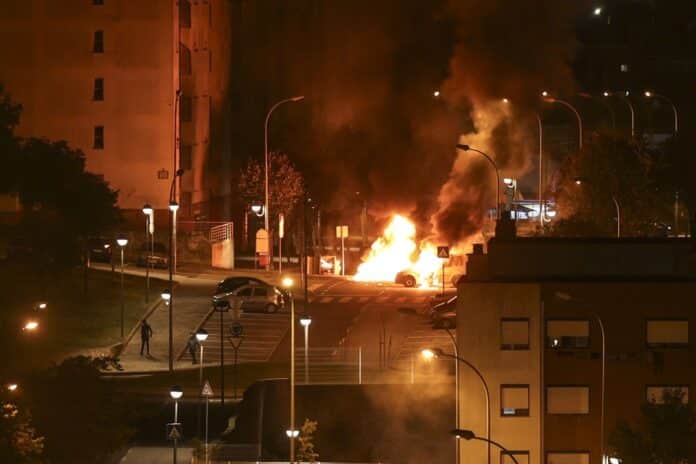Official PSP account continues to look ‘dodgy’
Almost two months on from the fatal shooting of Odair Moniz by a PSP agent and the ‘truth’ of what really happened, and why a man had to die, is still far from clear.
The official PSP press release referring to Moniz having threatened the agent with a knife jars with what the agent himself, and his partner who was with him at the time, subsequently told judicial police investigators.
But now, according to Expresso newspaper, there is even the possibility that the whole knife story was embellished, and that the knife found at the scene may have been ‘planted’.
By this, the paper means it may have been taken from Moniz’s money-belt after he was shot twice, and placed on the road (to suggest it had been in his hand when he was shot).
Suspicions of manipulation of evidence have been rife since the outset, but certainly, with the case still under Secrecy of Justice, the PSP police force is not coming out of it well. One of its officers killed a civilian; he has been questioned by public prosecutors, said the paper, but “this time he remained silent” – and the hierarchy appeared to have disseminated an account of the incident to the press that did not correspond with the truth.
Moniz’s death sparked outrage in the neighbourhood where he died – a suburb of Lisbon which was described in a BBC documentary back in 2015 as a place where police ‘hate black people’. Disturbances quickly spread to several other outlying municipalities.
A decade on, and the friction between black residents and the police appears little changed.
For the time being, the police agent who fired the killing shots remains cited for simple homicide, punishable with up to 16 years in jail.
He has, in the past, been described as an experienced agent. This week, Expresso has referred to a judicial source saying exactly the opposite, suggesting he has only been in the PSP police force for “about a year”. “There was a great deal of inexperience on the part of the agent”, said the source.
A number of commentators have referred to the possibility that the agent acted with an ‘excess of legitimate self defence’ – which in itself is a paradox.




















